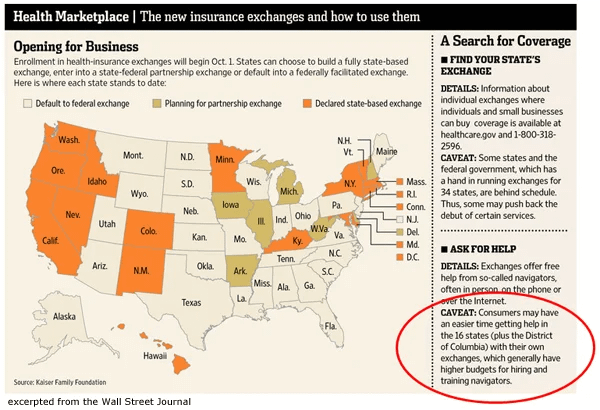GOP, Media Forget Bush's Medicare Navigators
In their latest effort to abort the Affordable Care Act, Republicans on Capitol Hill and in the states are targeting the "Obamacare navigators," the dozens of community groups, hospitals, charities and universities receiving a combined $67 million in federal grants to provide outreach, customer service, information and assistance to those Americans trying to enroll in the states that refused to set up their own health care exchanges. While House Republicans are investigating and demanding mountains of documentation from the grant recipients, restrictions in GOP-controlled Ohio and West Virginia have already forced two groups to drop out of the navigator outreach program.
If this latest Republican obstructionism seems unprecedented, that's because it is. When President Bush launched his unfunded $700 billion Medicare Part D prescription drug program in 2004, his administration didn't just spend millions of dollars on television advertising, just like the Obama Department of Health and Human and Services is doing now. As it turns, the Medicare drug benefit passed by Republican majorities in Congress similarly relied on "navigators" to get the word out and get American seniors signed up.
In May 2004, the Bush administration announced it would be working with the Access to Benefits Coalition (ABC) to help roll out the Medicare drug discount card program that spring and enroll seniors in private prescription plans by 2006. "Seniors and persons with disabilities need to take advantage of the real savings and real money that is on the table for them," then HHS Secretary Tommy Thompson said. "Seniors with low incomes can save significantly through the discounts and the $1,200 to pay for their prescriptions. It's an opportunity they can't afford to pass up."
To help in the enrollment effort, HHS is making an additional $4.6 million available to organize and fund community-based organizations to help low-income beneficiaries learn about the Medicare drug discount card program and how to enroll. These funds are in addition to the $21 million previously made available to the State Health Insurance Assistance Programs (SHIPs), which provide one-on-one assistance to Medicare beneficiaries through trained volunteer counselors who are provided training from CMS...
HHS and the Access to Benefits Coalition (ABC) also have committed to working together in a complementary fashion as they target low-income seniors with education and enrollment programs. And HHS' Administration on Aging (AoA) and Indian Health Service (IHS) are reaching out to their constituencies to make sure they sign up for the program.
"We have an energetic coalition from the public and private sectors that wants to make sure seniors take advantage of the substantive savings the Medicare-approved cards provide," Secretary Thompson said. "We want to be aggressive in reaching out to these beneficiaries so they don't miss out on this meaningful benefit to help pay for their medicines."
And just who were the members of the Access to Benefits Coalition?
Many were the usual suspects. AARP, which supported both Bush's Medicare Part D and Obama's Affordable Care Act, was one obvious partner. The "public-private partnership of over 70 diverse organizations dedicated to ensuring that lower income beneficiaries know about and can make optimal use of new Medicare prescription drug benefits" also included the National Hispanic Council on Aging, an organization which is also now an Obamacare navigator. The conservative 60 Plus Association, whose celebrity spokesman Pat Boone would later call Barack Obama "a president without a country" who is "waterboarding America" over "socialistic health care and a host of other ultraliberal causes," also received dollars from the Bush HHS.
Other Bush administration Medicare Rx partners in the ABC might seem a little more surprising. Take, for example, ACORN:
Regardless, then as now the White House understandably turned to dozens of charitable groups, health care groups, trade associations and lobbying groups to help with the outreach for its new Medicare drug program hoping to bring prescription coverage to 43 million American seniors. Former Bush Health and Human Services Secretary Mike Leavitt acknowledged as much in his July 12 Washington Post op-ed, a screed which advised the Obama administration to learn from the launch of the Medicare drug program:
Before the program was implemented, only 21 percent of seniors had a favorable opinion of it, and 66 percent didn't understand what the reform would mean for them.
So we spent 18 months devising and implementing a campaign to explain the prescription drug benefit, prepare seniors as well as partners -- such as community groups, churches, pharmacies, insurance plans and state and local governments -- and then sign people up.
Of course, now a Democrat sits in the White House. And if millions of Americans can successfully navigate Obamacare, the President's party will be the recipient of their gratitude for helping to make health care a reality.
Which is why Republicans are ever more desperate to stop them.



